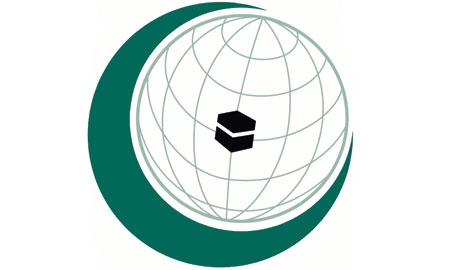In a time where it is expected that a rapidly growing Muslim community will contribute to more than a quarter of the world’s population by the year 2030, the Organization of Islamic Cooperation acts as the representative body that unites Muslim nations across the globe.
Little known to many, the
OIC is actually the largest inter-governmental organization in the world apart from the United Nations, with a wide-spanning membership of 57 countries spread over four continents. As the “collective voice” of the Muslim world, the organization aims to keep the interests of the Islamic states firmly at heart, vowing to safeguard and protect the plight and prosperity of its people in the true spirit of promoting international peace and harmony amongst the world’s diverse collection of cultures.
In doing so, for a period of 44 years the OIC has actively worked towards preserving Islamic social and economic values; encouraging solidarity amongst member states; increasing cooperation in social, economic, cultural, scientific, and political areas; whilst also helping to advance education, particularly in the fields of science and technology.
Originally named as The Organization of the Islamic Conference, the OIC was established on the 25th September 1969 (Muslim calendar: 12th Rajab 1389 AH) after the criminal arson of Jerusalem’s Al-Aqsa Mosque – regarded as one of Islam’s holiest sites – acted as a catalyst for a number of Islamic countries to come together at a historical summit held in Rabat, Morocco.
The successful formation of the OIC that followed the summit finally filled the void for the long awaited foundation of an official “Ummah” (the Arabic word commonly used to mean the collective community of Islamic peoples). Since the 19th century, many Muslims had aspired to a platform that could serve their common political, economic and social interests.
So with the first ever meeting of Islamic foreign ministers held in 1970, the conference established a permanent secretariat in Jeddah, Saudi Arabia – where the OIC’s headquarters have remained ever since. And whilst the first ever charter that outlined the organization’s core values and objectives was adopted way back in 1972, accordingly, the charter has since been amended in order to keep pace with the ongoing developments that continue to unravel across the increasingly globalized, Muslim and Western worlds.
The new charter, which was ascertained at the 11th Islamic Summit in Dakar in March 2008, has since become the pillar of the OIC’s future Islamic action in line with the requirements of the 21st century. The OIC affirms, whilst “providing for the dissemination and preservation of Islamic teachings and values based on moderation and tolerance, as well as the need to strive for the projection and defense of the true image of Islam, the new charter also calls for encouraging inter-civilizational and interfaith dialogue.”
Furthermore, through its charter for “consolidation” and “positive change” the OIC has outlined a number of key objectives which encapsulate its true purpose as an institution and act as guidelines for its member states to follow and work together in synergy to achieve their common goals.
One area that the OIC has given increasingly intensified focus upon is the phenomenon of Islamophobia. Through the various steps taken towards removing misperceptions of the Islamic faith, the Organization has “strongly advocated the elimination of discrimination against Muslims in all forms and manifestations.”
Islamophobia aside, going forward the OIC and its member states face many challenges in the 21st century. Thus, in confronting such challenges, a Ten-Year Program of Action was laid down in 2005. Along with broad modernization and reforms, the OIC has continued to emphasize good governance and promotion of human rights in the Muslim world, especially with regard to rights of children and women as well as family values.
With this strongly in mind and passionately in the heart, the OIC today continue in its mission for development, peace and greater understanding.

2 COMMENTS
I must say I'm impressed.. i had never heard of the OIC and it is clear they have a very inspiring vision.
Interesting report, I hope this is not just rhetoric